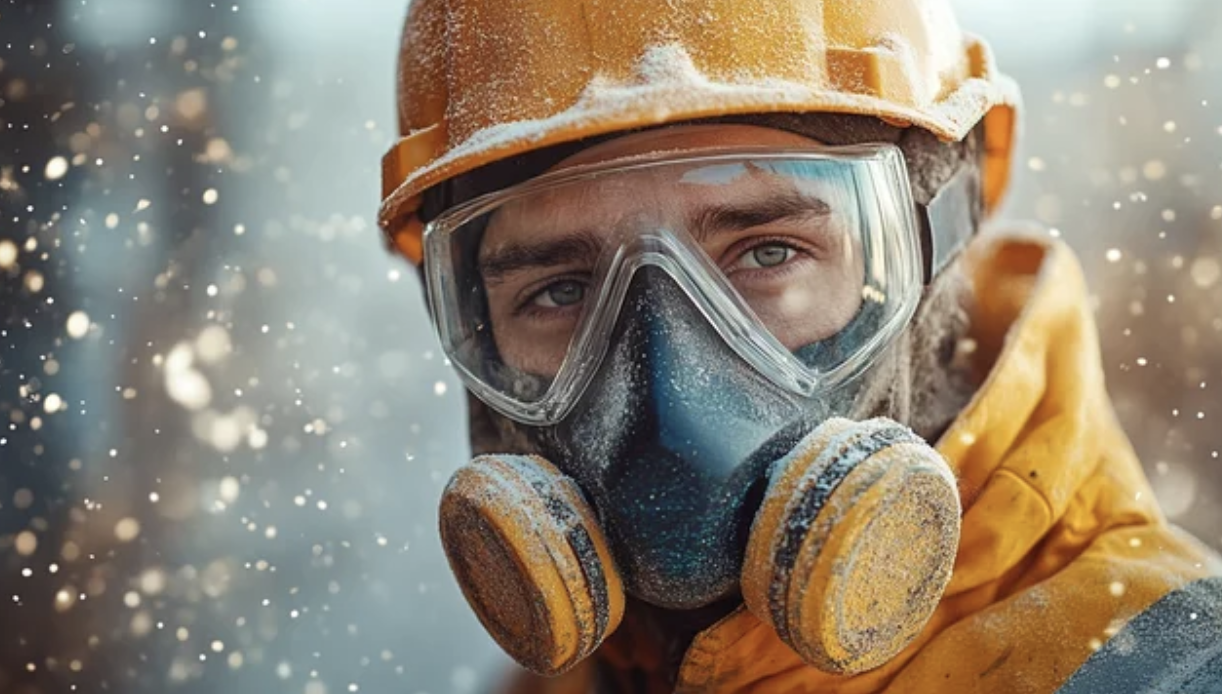Airborne hazards are a silent threat in many work environments—from construction sites and factories to labs and processing plants. Exposure to dust, fumes, vapors, and other respiratory irritants can cause long-term health issues or even immediate harm. That’s why OSHA mandates that employers implement a formal Respiratory Protection Programwhen hazards are present.
Whether you’re managing a manufacturing facility in Kansas City, MO, or overseeing a team in a high-risk industry, ensuring OSHA respiratory protection compliance is not just a legal obligation—it’s critical to employee health and operational safety.
What Is OSHA Respiratory Protection Compliance?
OSHA’s Respiratory Protection Standard (29 CFR 1910.134) requires employers to:
- Assess respiratory hazards in the workplace
- Provide appropriate respirators (N95, half-face, full-face, etc.)
- Implement a written Respiratory Protection Program
- Ensure medical evaluations and fit testing are completed
- Train employees on proper use, maintenance, and limitations
If your workplace uses hazardous chemicals, generates dust or fumes, or has oxygen-deficient areas, you are legally required to comply with this standard.
Why a Respiratory Protection Program Matters
1. Prevents Serious Illnesses and Long-Term Exposure Risks
Respiratory hazards can lead to asthma, lung cancer, silicosis, and chronic bronchitis. A compliant program ensures employees are protected from these risks.
2. Avoids OSHA Fines and Liability
Inadequate respiratory protection is a top 10 most cited OSHA violation. Fines can exceed $15,000 per violation, especially when fit testing and training are ignored.
3. Improves Worker Confidence and Retention
Employees who feel protected are more confident in their work and more likely to stay long-term—especially in environments with known hazards.
4. Enhances Emergency Preparedness
From chemical spills to fires, having respirators on-hand and employees trained in their use can save lives during emergencies.
Who Needs a Respiratory Protection Program?
OSHA respiratory protection compliance is required for businesses that operate in:
✔ Manufacturing & Fabrication
✔ Construction & Demolition
✔ Chemical Processing & Laboratories
✔ Food Processing & Agriculture
✔ Healthcare & Emergency Response
If your operation in Kansas City, MO, involves welding fumes, silica dust, chemical mists, or other inhalable hazards, OSHA compliance is not optional—it’s critical.
What Should Be Included in a Compliant Program?
✅ Hazard Assessment – Identify airborne contaminants and exposure levels.
✅ Medical Evaluations – Ensure employees are physically able to wear respirators.
✅ Fit Testing – Conduct initial and annual testing for tight-fitting respirators.
✅ Respirator Selection – Provide the correct respirator for the hazard type and work conditions.
✅ Employee Training – Teach workers how to inspect, use, and clean respirators properly.
✅ Program Administration – Assign a trained individual to manage documentation, inspections, and updates.
How Compsolve Helps Businesses in Kansas City
At Compsolve, we work closely with employers in Kansas City, MO, to create and implement effective respiratory protection programs. Our services include:
🔹 Custom Program Development
🔹 Onsite Hazard Assessments
🔹 Fit Testing & Medical Evaluation Coordination
🔹 Employee Training & Certification
🔹 Recordkeeping & Compliance Tracking
🔹 Ongoing Support & Annual Updates
Final Thoughts
Ignoring airborne hazards is not only dangerous—it’s a compliance risk. With the right respiratory protection plan in place, you can safeguard your team, meet OSHA requirements, and maintain smooth operations.
Contact Compsolve today to schedule a respiratory protection consultation and ensure your workplace in Kansas City, MO, is fully OSHA-compliant and air-safe.

